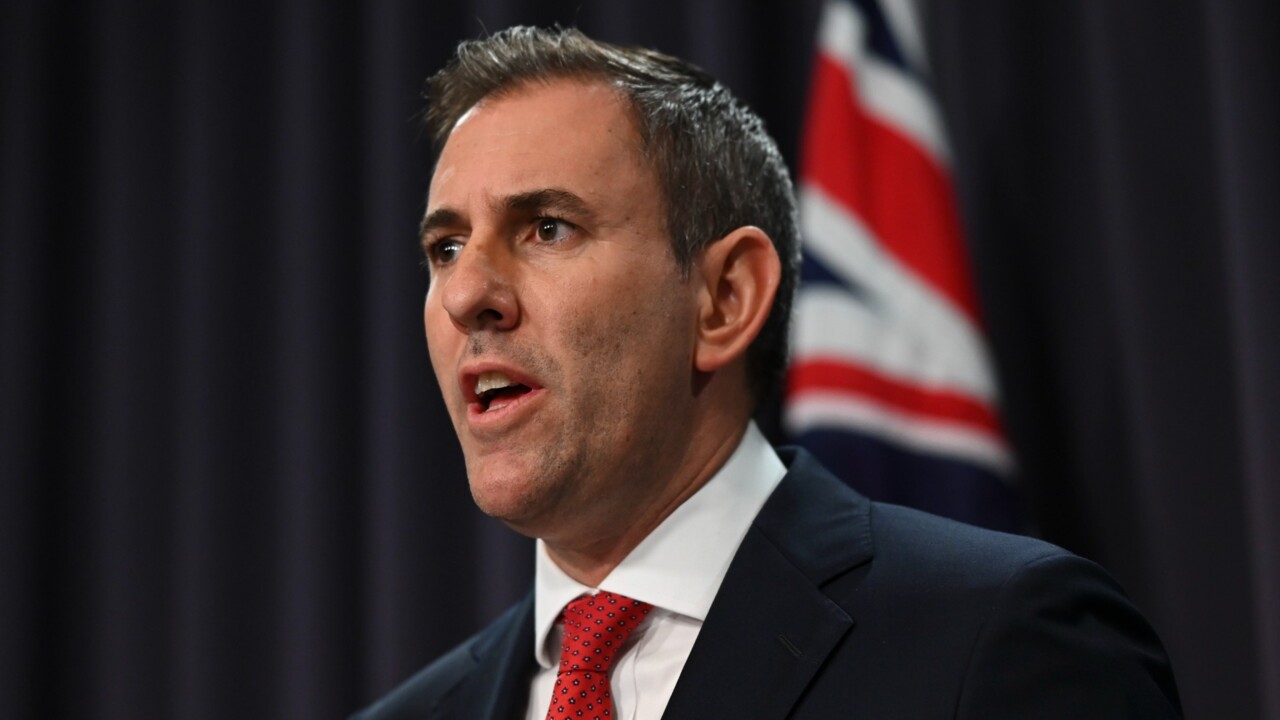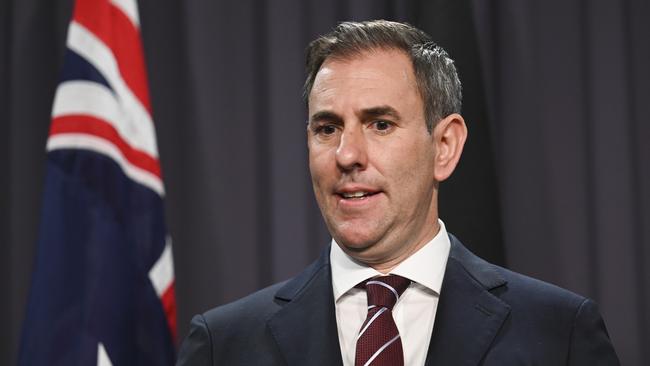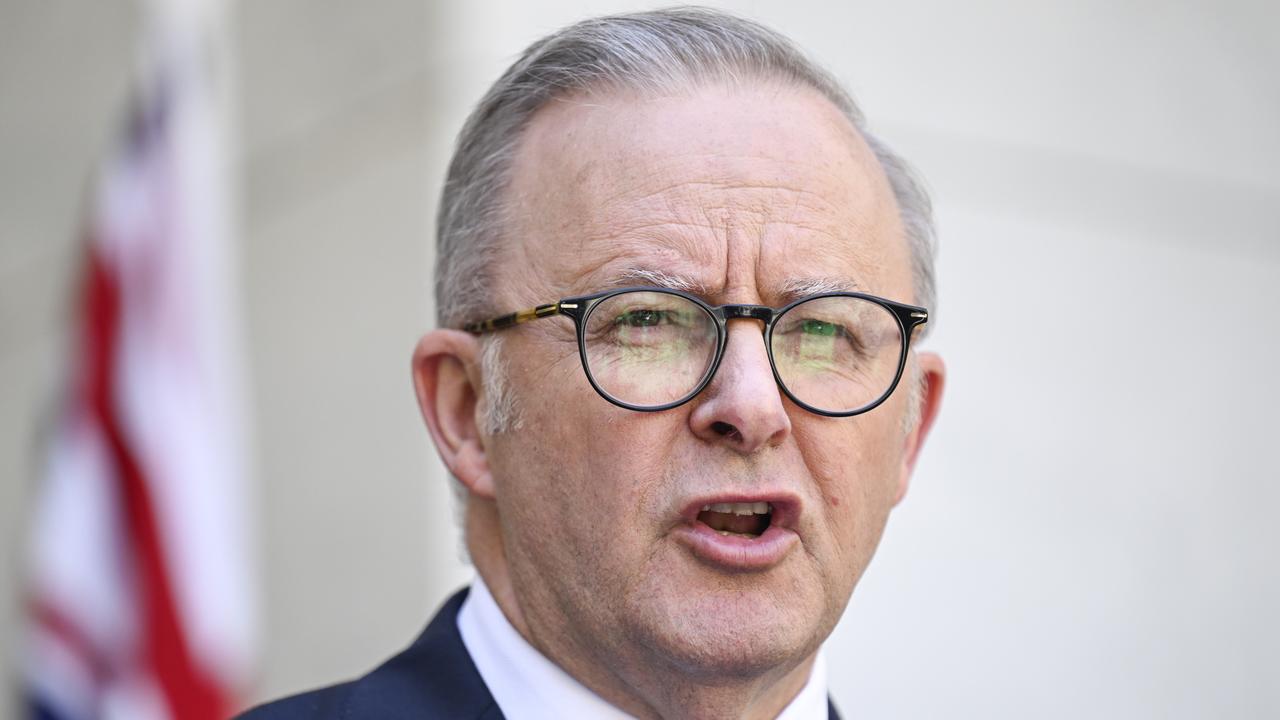Per-capita recession deepens as economic growth sinks to 0.1 per cent
Treasurer Jim Chalmers has acknowledged the economy is “barely growing”, after GDP increased by just 0.1 per cent in the first three months of 2024.

Business Breaking News
Don't miss out on the headlines from Business Breaking News. Followed categories will be added to My News.
The Australian economy slowed to a near standstill in the March quarter, with an increase in government expenditure and an uptick on essential spending by cash-strapped households stopping the economy from heading in reverse.
Across the first three months of the year, Australia’s GDP expanded by a meagre 0.1 per cent, cutting annual growth to 1.1 per cent from 1.5 per cent in December, the Australian Bureau of Statistics said on Wednesday.
Outside the coronavirus pandemic, the annual GDP reading was the weakest result since the end of the early 1990s recession.
GDP per capita, a measure for living standards, slipped a further 0.4 per cent across the quarter, the fifth consecutive quarter where the rise in population more than doubled the rate of economic growth.
In the last 12 months, GDP per capita was 1.3 per cent lower.
“Such an outcome would normally be associated with a large negative shock or recession,” Commonwealth Bank’s head of Australian economics Gareth Aird said.
Speaking to reporters in Canberra, Treasurer Jim Chalmers said the fresh GDP figures vindicated the fiscal strategy underpinning the May budget.
“This is a justification for the government’s approach to fighting inflation without smashing the economy, given growth was already soft and people were already under pressure,” Dr Chalmers said.
“We are striking exactly the right balance between addressing that inflation, providing that cost-of-living help, supporting sustainable economic growth and strengthening our public finances.”

However, shadow treasurer Angus Taylor, who described the figures as a “truly shocking set of numbers”, said the national accounts data should act as a “wake up call” to the Albanese government.
“There’s a whole generation of Australians who’ve never seen anything like this before and what we see here is five consecutive quarters of negative GDP per person growth,” Mr Taylor said.
“This is a household recession.”
Across the quarter, household spending rose 0.4 per cent with the bulk of the increase attributed to non-discretionary purchases as family budgets come under increased pressure from stubborn inflation, elevated interest rates and a soaring income tax take.
Outlays on electricity and utilities jumping 8.2 per cent due to higher usage across the summer months, while spending on food and rent was up 2 per cent and 0.4 per cent, respectively.
The weakness in household consumption, was offset by an increase in recurrent government expenditure, up 1 per cent in the three months to March, due to increased outlays on medical benefits and energy bill rebates.
A $2.2bn increase in business inventories after stock was rundown in the lead up to Christmas, also helped boost the quarterly GDP reading.
However, declining terms of trade also dragged on growth as falling export volumes for key commodities like iron ore and coal, were outweighed by surging imports for consumer goods like medicines and clothing.
Residential investment was also very weak, down 0.5 per cent, while non-residential building investment, fell even further, dropping 4.3 per cent.
In a major revision to its previously released data, the ABS also identified $22bn of an extra spending on overseas travel since the start of 2024, with the rundown in household savings also greater than anticipated, suggesting consumers would spend more of the stage three tax cuts than previously anticipated.
RBC chief economist Su-Lin Ong said that while the firmer-than-expected household consumption figures wouldn’t force the RBA to adjust interest rates, the revision was coming at a time of additional cost of living relief.
“We don’t think this will prompt a monetary policy reaction, but it does tilt the risks just very marginally if households are feeling strong enough to keep lifting their spending, especially with tax cuts and energy assistance to come,” Ms Ong said.
Originally published as Per-capita recession deepens as economic growth sinks to 0.1 per cent




